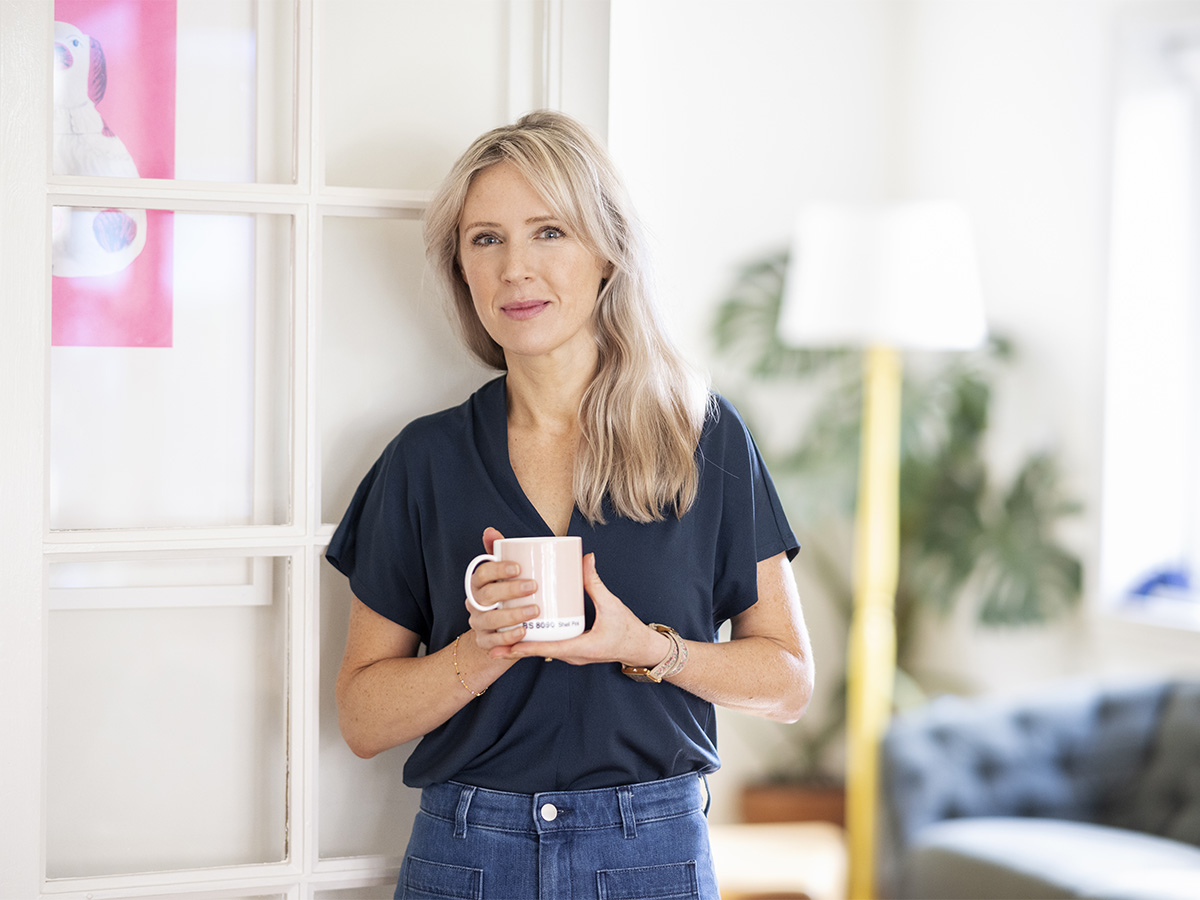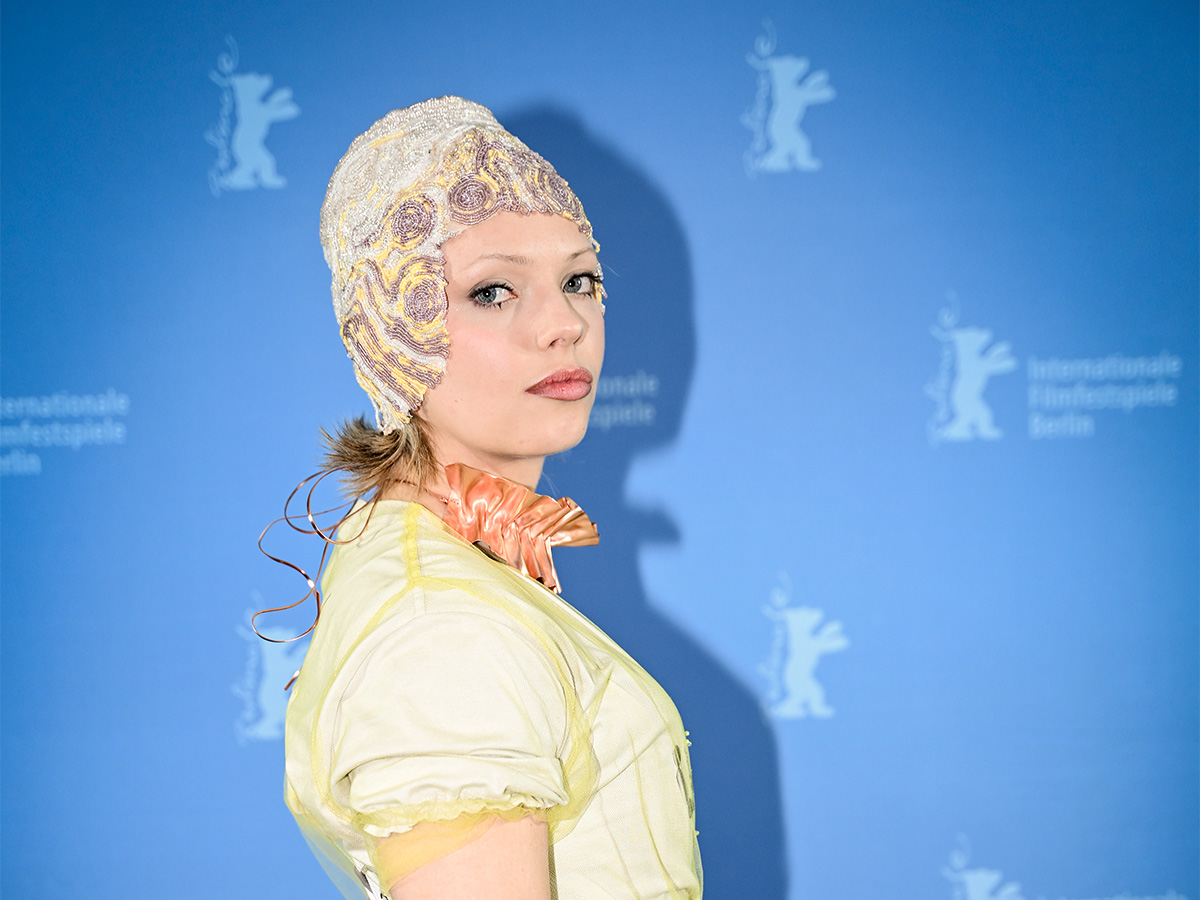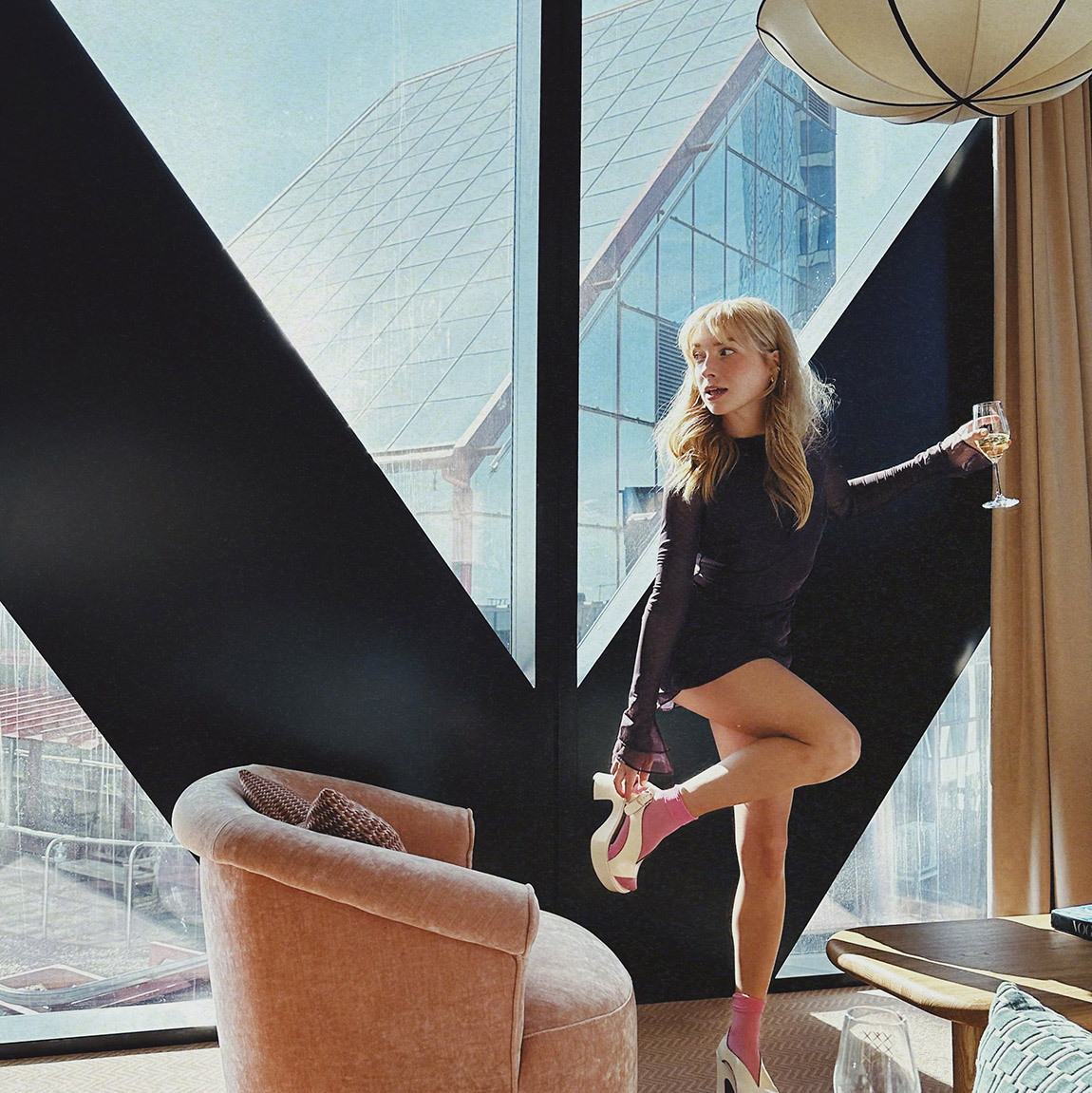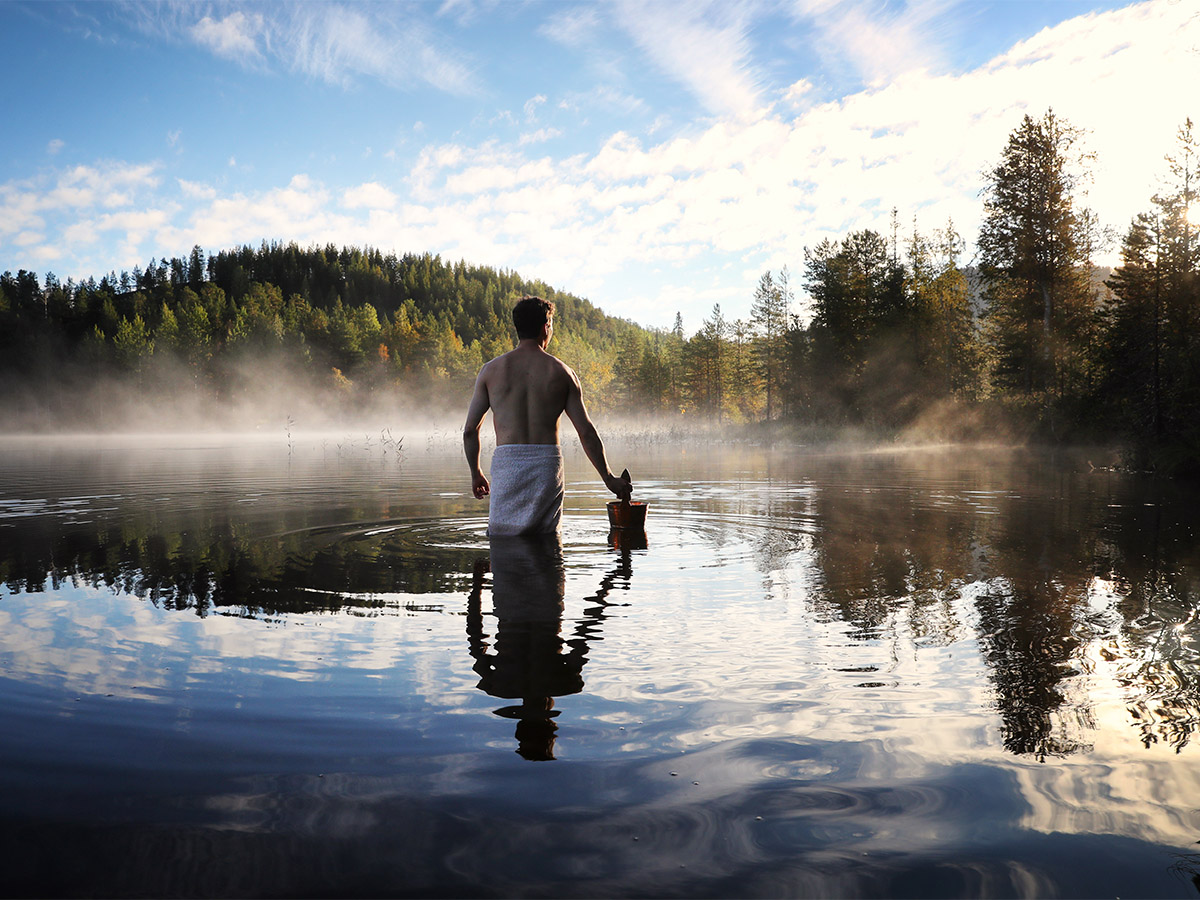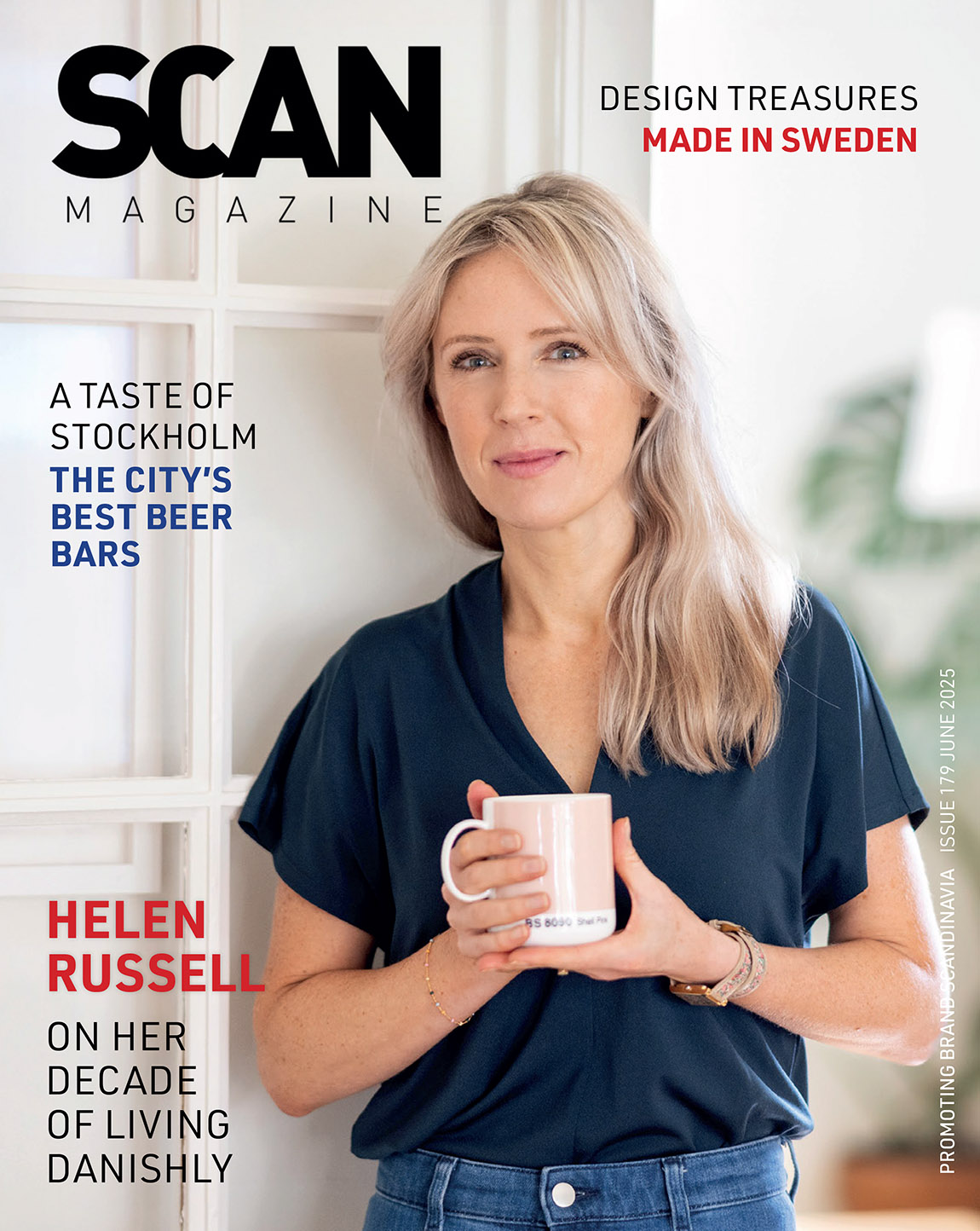Youssef Wayne Hvidtfeldt: Coming to terms with my own identity was critical for my portrayal of Sammi
By Anders Lorenzen | Photos: HEIN
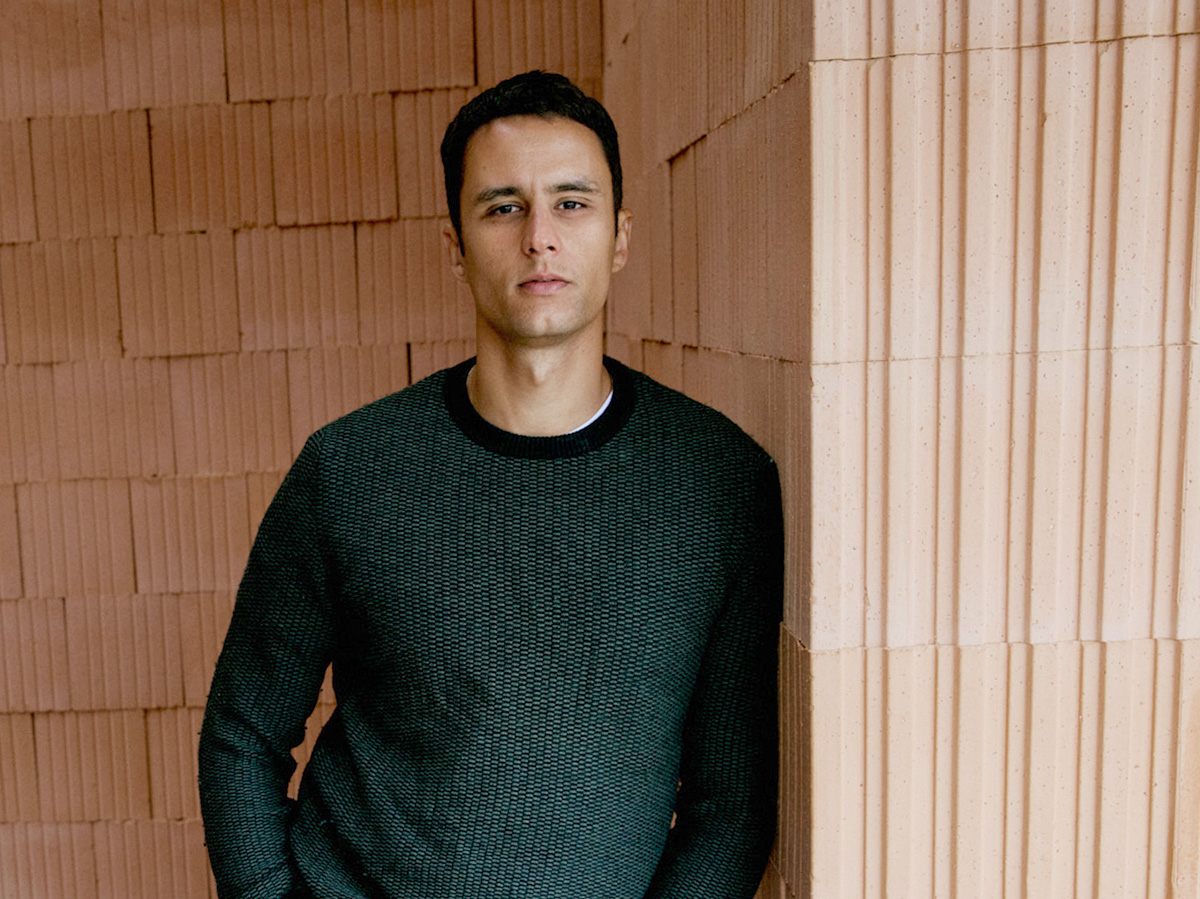
Playing the lead in Denmark’s newest hit series, Huset, Youssef Wayne Hvidtfeldt looks set to become the new star of Nordic Noir. He may not have the sweater of his co-star Sofie Gråbøl, but see if his sorrowful brown eyes won’t make up for it.
The name Youssef Wayne Hvidtfeldt, may not be familiar to many outside Denmark. Even in Denmark, the 35-year-old Danish/Moroccan actor was not widely known until recently. That was, until he played the main character Sammi in the massive Nordic noir hit series Huset (Prisoners). When the show aired on the Danish public broadcaster, Danmarks Radio (DR), last year, the Danes were swept away by the combination of grim prison reality and the pained stare of Sammi’s brown eyes. And, as the BBC and Canal+ are among the broadcasters who have acquired the rights to the show, the rest of Europe will soon be able to sit down and enjoy its highly addictive Nordic grimness.
On the back of his performance in Huset, Hvidtfeldt is considered one of the most promising actors in Denmark. But despite having a packed schedule, the busy actor found time to sit down with Scan Magazine for a conversation about identity, family, ambitions – and how he landed the top role in Huset.
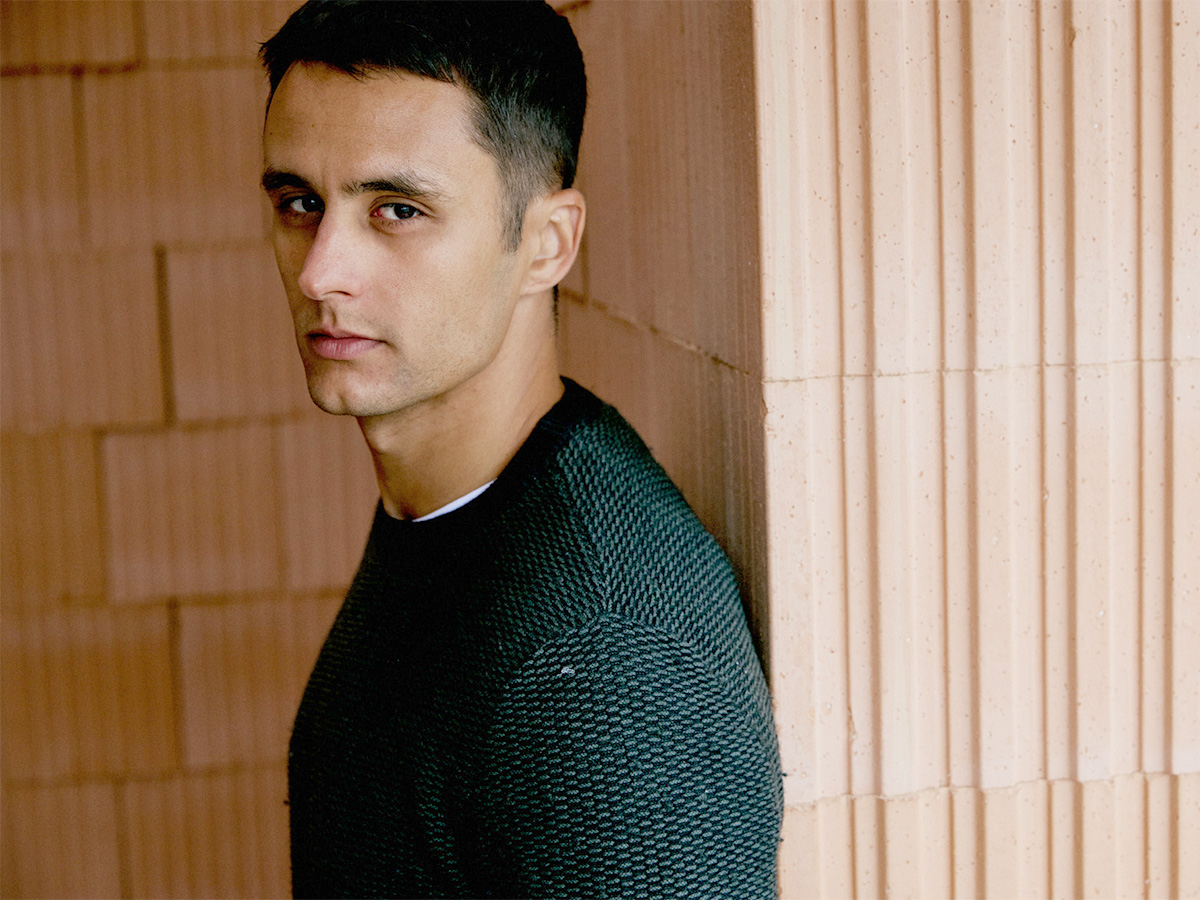
A massive hit
In Denmark Huset was nothing less than a massive hit, reaching a whole new demographic of young people for whom Huset was their first acquaintance with DR drama series, “I met so many young kids on the street recognising me and asking – aren’t you the guy from Huset?,” smiles Hvidtfeldt.
But Nordic noir fans should not worry – the series’ popularity among young people is not an indicator that it lacks depth or darkness, on the contrary. Set in a Danish prison, the series tackles the contagious subject of the welfare of not just prisoners but of the people who look after the prisoners, the guards. Thus it was vital for the participating artists to recognise their roles in shaping the debate on the issues: “You need to have some sort of overview when working with such a big subject, but I don’t like to draw any conclusions around any of the stuff we portray. We can, of course, have a moral viewpoint, and we can highlight when something is wrong, but what is important is that it creates debate,” Hvidtfeldt explains. It is evident that Huset already has done so, as, in the wake of the show, a move to secure more welfare and state support for prison staff was announced by the Danish government.
Playing next to his co-lead Sofie Gråbøl (for the role, the the Killing star has swopped her iconic sweaters for a prison uniform), Hvidtfeldt portrays a young prison guard determined to do everything by the book. “A lot of the complexity of his character has to do with the fact that Sammi does not have more options in life. He has this one chance to succeed, and if he does not, he has nothing else left – that’s why he is so super-ambitious and wants to progress so rapidly,” says Hvidtfeldt. And though he sees many likenesses between himself and his character, he admits that he would have acted differently and would have wanted to make sure “more people would have liked me. But Sammi only has this focus – that he has to advance within the service to a higher position.”
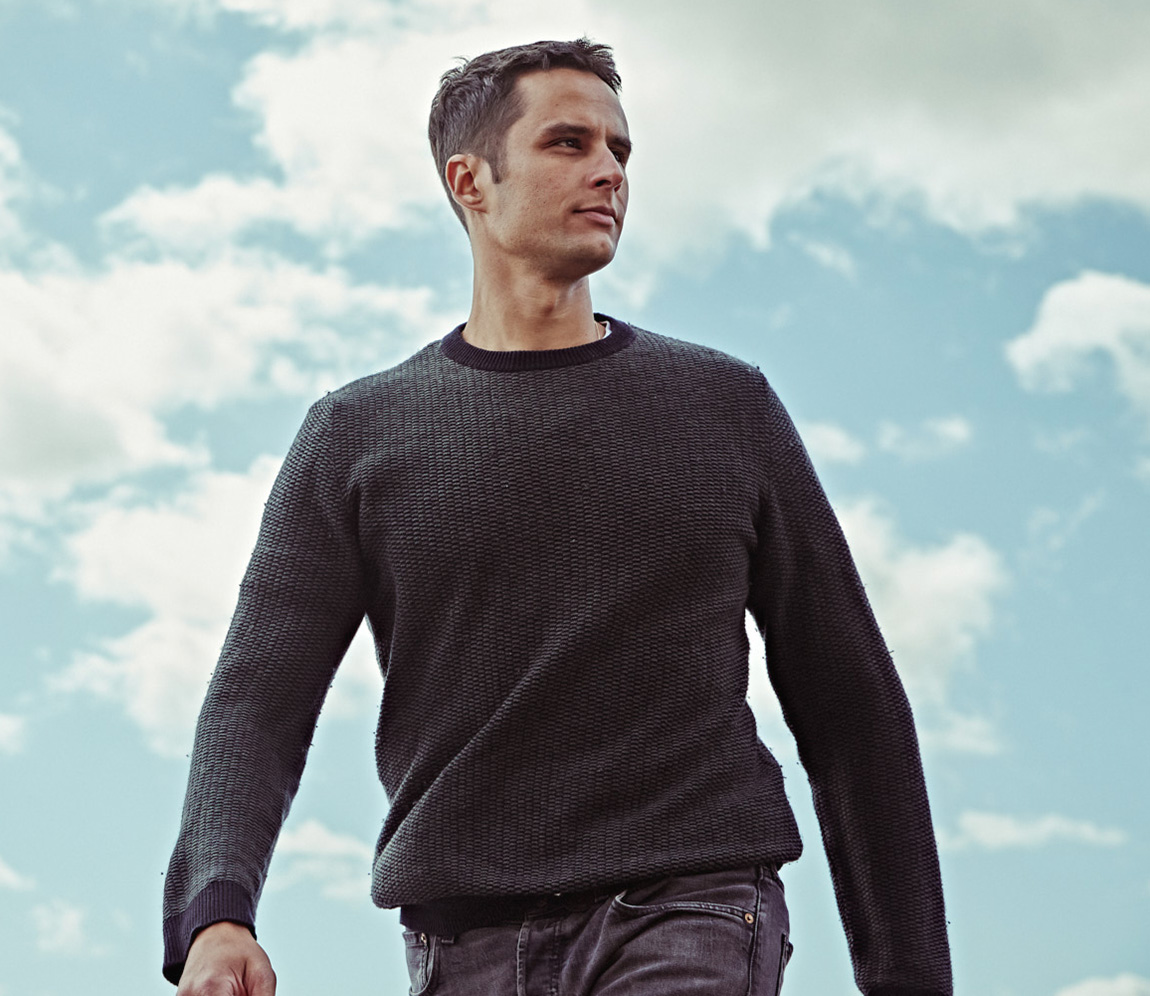
How it all began
Having one single career focus is, however, not unfamiliar to Hvidtfeldt. “As far back as I can remember, I have always wanted to be an actor,” he tells us when reflecting on how this journey started for him. To this day, however, he is unsure what inspired this wish but reckons growing up surrounded by a creative family had an impact. Hvidtfeldt’s mother was involved with the production of the Cirkeline films (a popular Danish TV series), and both his parents played in a band. However, his grandparents might have been more directly responsible for his passion for film and filmmaking “They were co-owners of a cinema, which still exists today, and they were always very engaged in technical elements,” he recalls. The access that the cinema gave him to films and the passion for film craft his grandparents displayed as well as his parents’ creativity, says Hvidtfeldt, “was the combination of events that made me want to become an actor and created the dream of doing something creative.”
One could argue that the story of how Hvidtfeldt’s Moroccan father and Danish mother met would in itself be a great plot for a film. “It was a coincidence”, he recalls. “My Dad was on Interrail and was passing through Hovedbanegaarden (Copenhagen’s main train station) he then told one of the conductors – I want to go to Sweden where do I go? The conductor said you go to this platform, but he went the wrong way and then he by coincident met my mum on the platform waiting for the train for Slagelse (a municipality south-west of Copenhagen) where she lived at the time”. Hvidtfeldt described his parents as ‘two giant hippies’. “My Mum just stood there barefooted in a poncho.” The two started chatting and have been together ever since.
While Hvidtfeldt would join his dad when visiting his Moroccan relatives, naturally the connection to that side of the family was more distant. There was never a question about whether they should live in Denmark or Morocco, with Hvidtfeldt explaining that his dad, who was of a liberal and a progressive mindset, had worked hard to seek other opportunities away from a country which he, back then, described as corrupt and impoverished.
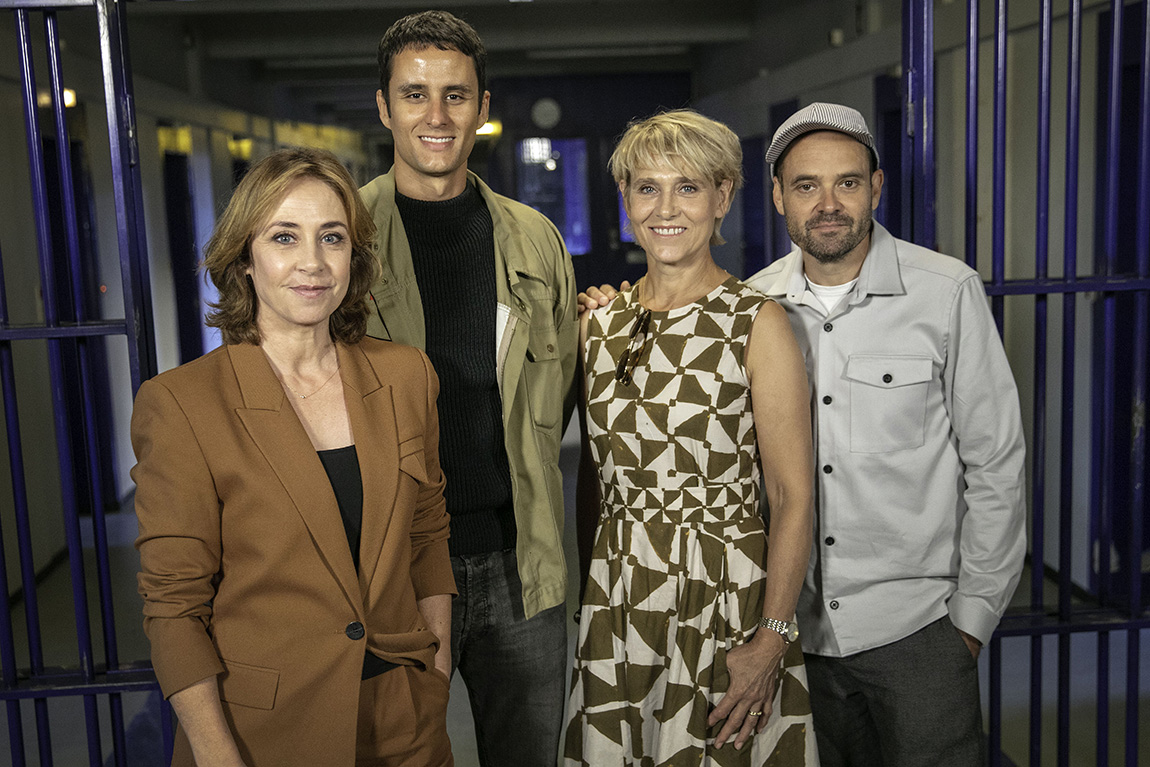
In Huset, Youssef Wayne Hvidtfeldt plays next to three of Denmark’s leading actors (left to right), Sofie Gråbøl (the Killing), Charlotte Fich (Rejseholdet), David Dencik (Tinker, Tailor, Solider Spy). Photo: DR Bjarne Bergius Hermansen.
Finding identity in Batman
While Hvidtfeldt does not describe it as an identity crisis, during periods of his life, his Moroccan/Danish heritage started posing challenging questions about his identity. Having lived in Denmark his entire life, he felt like something was missing. “Maybe, in the past, I have felt like I was not fully, 100 per cent, something while growing up,” he explains. “Describing it as a crisis is an exaggeration, but I have in a way struggled to identify myself and have not felt my name was quite right.”
Consequently, Hvidtfeldt admits, he would often internally criticise himself with thoughts such as: “I could do a better job at speaking the Moroccan language and understanding the culture.” Today, the actor feels a stronger sense of connection to his Moroccan identity and can find joy in his background “Now, I have now turned 35, and I have found peace with who am,” he stresses. Moreover, as a solution to his quarrels with his name, which he felt represented only what he calls his half/half heritage and not him as a whole person, he decided to add something that was essentially his. Inspired by his childhood admiration for Batman, he took the middle name Wayne, after Bruce Wayne.
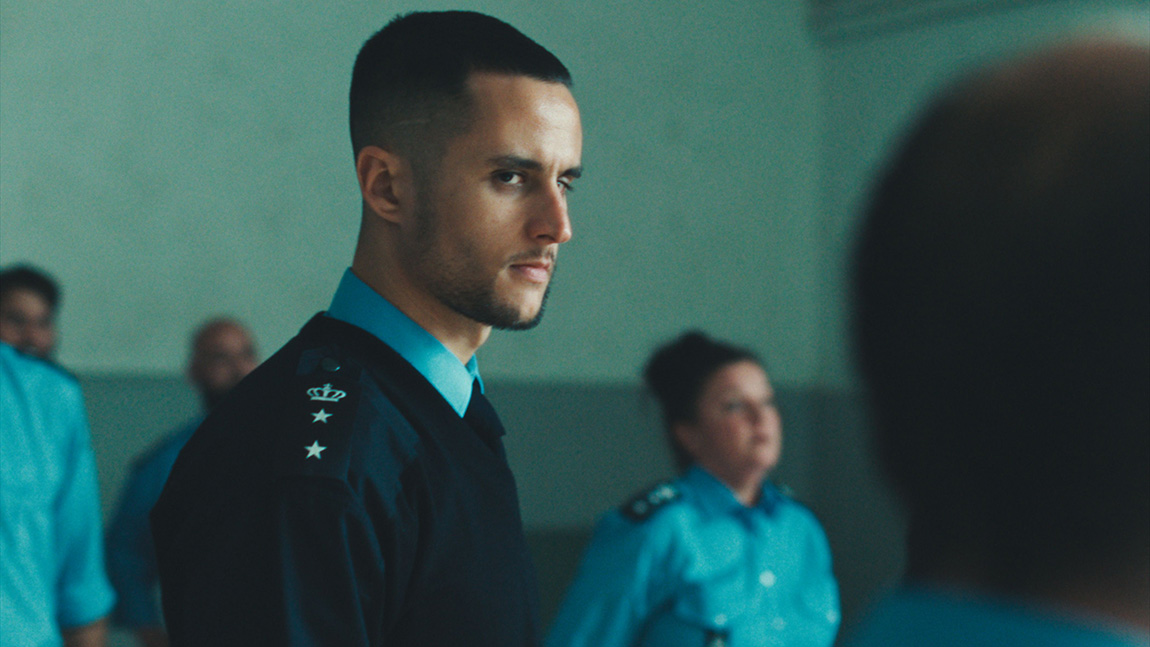
Huset (Prisoners) portrays the brutal everyday life of inmates and staff in a Danish prison. Photo: DR Adam Wallensten
The road to Huset
Though he might be a new name to many, Hvidtfeldt’s entrance into the role of Sammi did not happen out of the blue. It came after the actor, who started his career in the theatre, had, in recent years, turned more towards screen acting, landing roles in numerous TV series including the new season of the hit show Borgen (2023). Thus, when Huset came around, he was well-established within the industry and was approached by one of the Huset directors who thought he would be a good fit for the character of Sammi. “When I first heard about it, I thought it sounded super cool as it is a rarity to see this kind of genre in Danish Film and TV, and the more I heard about the character, the more I was thinking – this is kind of me,” Hvidtfeldt recalls. He further explains that one of the appeals of the role was the identity questions of the character, something which made him realise that coming to terms with his own identity challenges was to be crucial for him to develop the character. “I thought that through Sammi’s way of behaving, I was forced to rethink my own identity in relation to how I am, I was thinking – I’m this slim guy […] how do I become able to measure myself against the guys in prison? Early on, this forced me to think about ways to compensate. I am a little distanced in the way Sami is, and I do not play into the social norms and rules,” he explains. “He talks rarely and most of all he stares.”
In the casting process, he believes this approach contributed to him landing the role “I think it made them think – here is a guy who doesn’t just try to play that tough guy”.
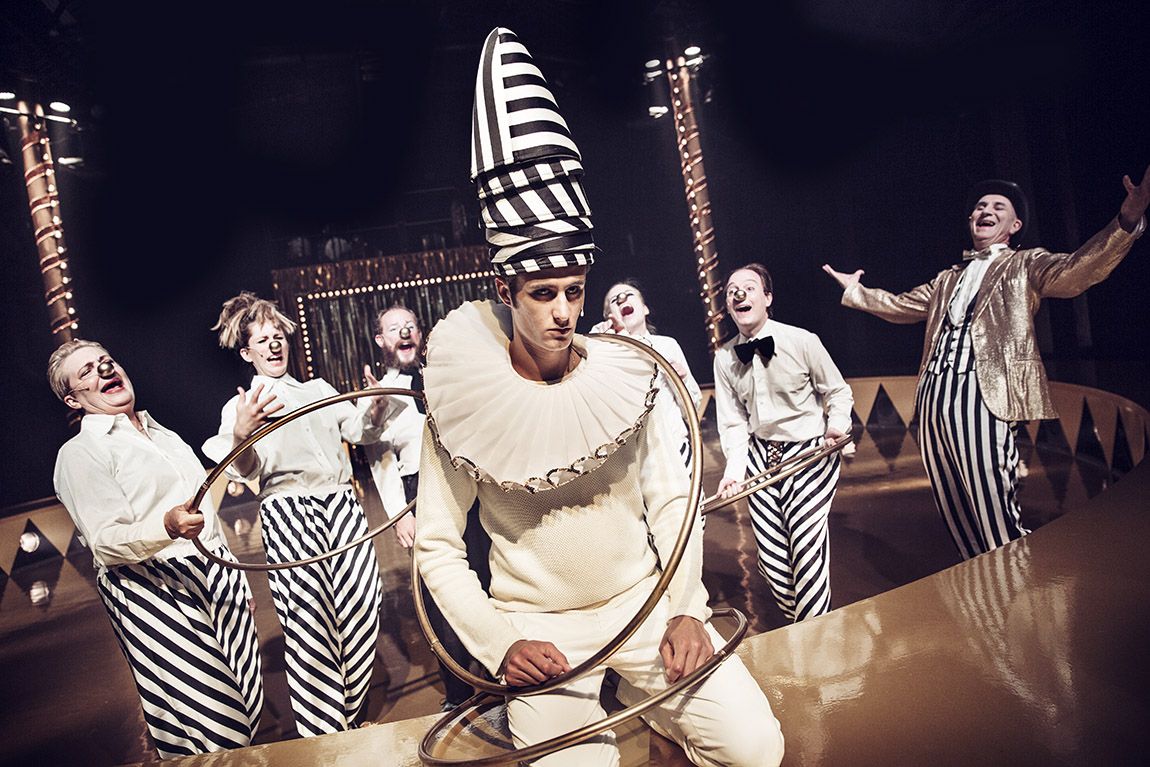
Youssef Wayne Hvidtfeldt playing in Cirka lig med at Odense Theatre, 2016/7. Photo: Emilia Theresa
Not going for a lottery ticket in Hollywood
In terms of what the future holds for the promising actor, Hvidtfeldt tells Scan Magazine that while he has new projects in the pipeline, unfortunately, it is not at a stage where he can talk about it yet. He does, however, reveal, that to ensure that he keeps developing as an actor he has set a goal for himself each year to do something new, something he has never done before. But don’t think that that will mean him taking off to Hollywood, next year because, while Hvidtfeldt is open to the idea of taking part in international productions, he is cautious of being swept away by the Hollywood dream. “When starting your career, I think the dream of going to Hollywood straight away can be quite damaging. It is like an X-factor or lottery,” he says before continuing. “Now, having established myself through many years of acting at the theatre and on the screen, I hope to be able to act abroad at one point, but Hollywood is not one of my big dreams right now.”
Of course, by now many Danish viewers will be impatiently reading, waiting for us to ask only one question – will there be a second series? With nothing announced, it is still confined to the rumour mill, and, alas, Hvidtfeldt can say nothing more concrete as of yet. No matter what, one thing is for sure – the future can only look bright for this promising actor who despite the increased interest in his talent – which is only likely to intensify as Huset is rolled out to international audiences – has got his feet planted firmly on the ground.
Huset (Prisoners) will air on BBC Four and Iplayer in 2024.
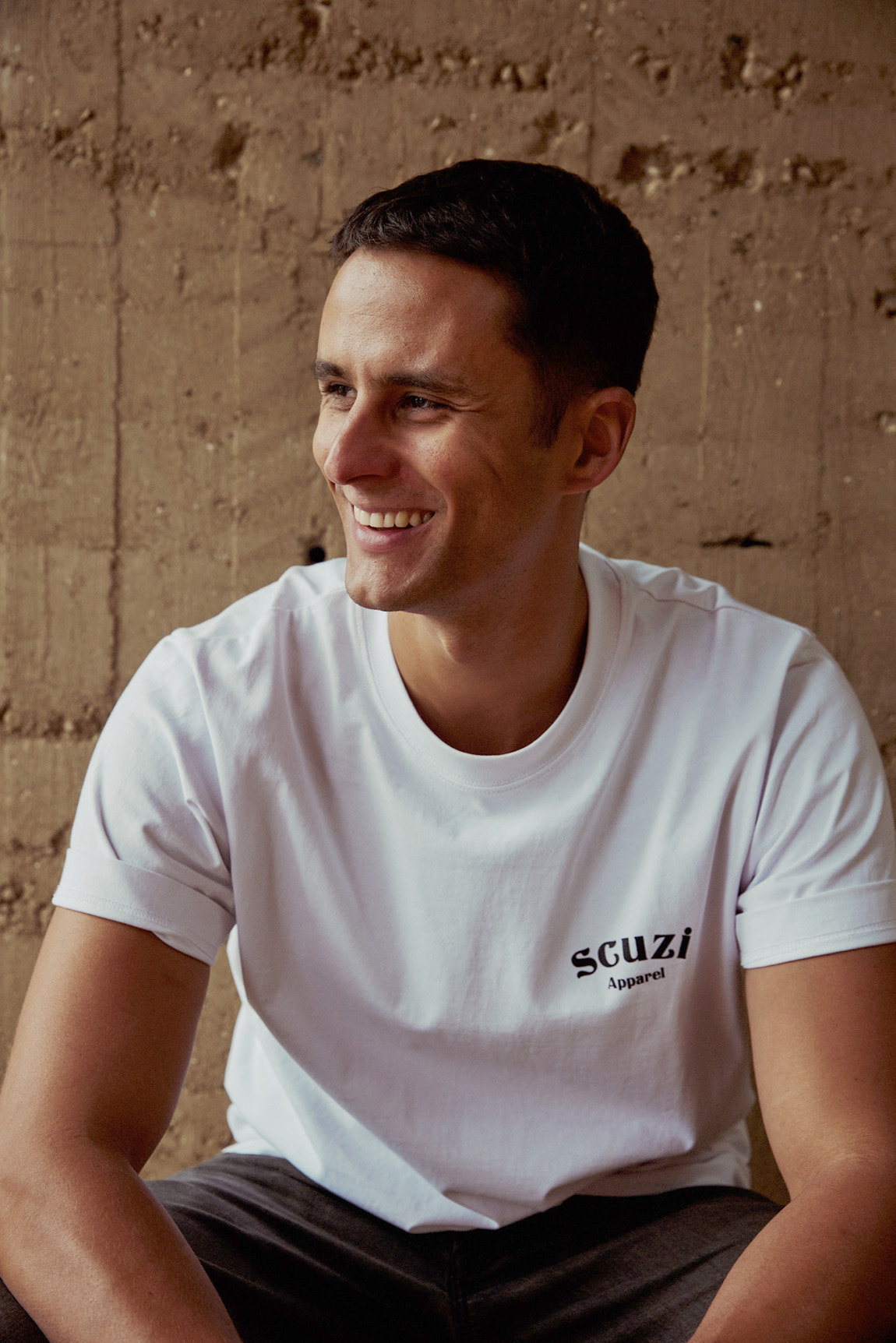
Youssef Wayne Hvidtfeldt (Credit: HEIN)
Subscribe to Our Newsletter
Receive our monthly newsletter by email

